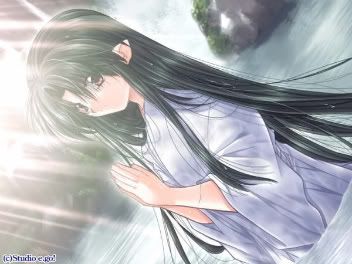UPDATE!
I am VERY sorry for my sudden disappearence... It will be happening quite a bit lately, because this computer keeps crapping out and i need to send it to a friend to fix it, and... *walk of shame* I was out being a bad person last night... Either way, I WILL be beginning class again and will start today.
EDIT: Seems I goofed a bit, the Enchanter's Nightshade was supposed to be the SECOND lesson that i would teach, so it is bwing moved lower, and in here will be the real first lesson.
FIRST LESSON
Pay attention wen you hear the word BANE. It is a warning of danger. Bane derives from the old German word bano, meaning death. Bane implies that a plant is poisonous enough to cause death.
Poisonous plants may be even more lethal today for two reasons. Firstly lack of knowledge. we don't really know how or even if our ancestors administered the following plants. It is very possible that once apon a time ancient practitioners, skilled herb-witches, knew how to combine dangerous plants in such a way that they buffered each other, antidoting each other and made administration of individually poisonous substances possible. We no longer have this knowledge, it may be lost forever.
Secondly, concentration and isolation. Today we know that every botanical contains various phyto-hormones and chemical constituents including alkaloids that provide its various physical effects. In other words, once upono a time we knew that belladonna was toxic, now we know why its toxic which chemical constituents are responsible or its poisonous effect. these can now be isolated and concentrated. The effect of the chemical on its own is almost certainly more potent and concentrated than when left as part of a complex system. There are herbalists who will only work with whole plants believing that any form of concentration of plant powers, including essntial oils is dangerous.
SAFETY TIPS
*NEVER use any botanicals without expert professional supervision. This extends to more than just standard internal administration. Even handling certain plaints can be dangerous.
*Do NOT wildcraft (i.e., don't harvest from wild places), for two reasons:
1. This is the botanical equivalent of poaching animals; many botanicals are severely endangered in the wild.
2. Plants can be deceptive. It's very, very easy to assume that one is picking one plant when one is, in fact, picking another. This is particularly true with mushrooms, who bear reputations as tricksters, sometimes deadly ones. The classic example occurred in North California. Japanese mushroom experts, visiting the area, brought theit harvest home and prepared them for dinner and were promptly poisoned, some fatally. They were genuinely experts: that they picked was ABSOLUTELY identical to mushrooms that were safe in Japan, except that the Californian varient was lethal.
Pay attention wen you hear the word BANE. It is a warning of danger. Bane derives from the old German word bano, meaning death. Bane implies that a plant is poisonous enough to cause death.
Poisonous plants may be even more lethal today for two reasons. Firstly lack of knowledge. we don't really know how or even if our ancestors administered the following plants. It is very possible that once apon a time ancient practitioners, skilled herb-witches, knew how to combine dangerous plants in such a way that they buffered each other, antidoting each other and made administration of individually poisonous substances possible. We no longer have this knowledge, it may be lost forever.
Secondly, concentration and isolation. Today we know that every botanical contains various phyto-hormones and chemical constituents including alkaloids that provide its various physical effects. In other words, once upono a time we knew that belladonna was toxic, now we know why its toxic which chemical constituents are responsible or its poisonous effect. these can now be isolated and concentrated. The effect of the chemical on its own is almost certainly more potent and concentrated than when left as part of a complex system. There are herbalists who will only work with whole plants believing that any form of concentration of plant powers, including essntial oils is dangerous.
SAFETY TIPS
*NEVER use any botanicals without expert professional supervision. This extends to more than just standard internal administration. Even handling certain plaints can be dangerous.
*Do NOT wildcraft (i.e., don't harvest from wild places), for two reasons:
1. This is the botanical equivalent of poaching animals; many botanicals are severely endangered in the wild.
2. Plants can be deceptive. It's very, very easy to assume that one is picking one plant when one is, in fact, picking another. This is particularly true with mushrooms, who bear reputations as tricksters, sometimes deadly ones. The classic example occurred in North California. Japanese mushroom experts, visiting the area, brought theit harvest home and prepared them for dinner and were promptly poisoned, some fatally. They were genuinely experts: that they picked was ABSOLUTELY identical to mushrooms that were safe in Japan, except that the Californian varient was lethal.
ROSTER
1. Roleplayninjakitty239 (Laura)
2. MagicThingy (Mana)
3. starfish rocker (Evelen)
4. Timorous Werewolf (Accalia)


 Accalia glanced around the school, finally finding the class and signed her name up for Magical Plants and Fungi quietly before heading off to see if maybe another class she wanted was ready yet.
Accalia glanced around the school, finally finding the class and signed her name up for Magical Plants and Fungi quietly before heading off to see if maybe another class she wanted was ready yet.
